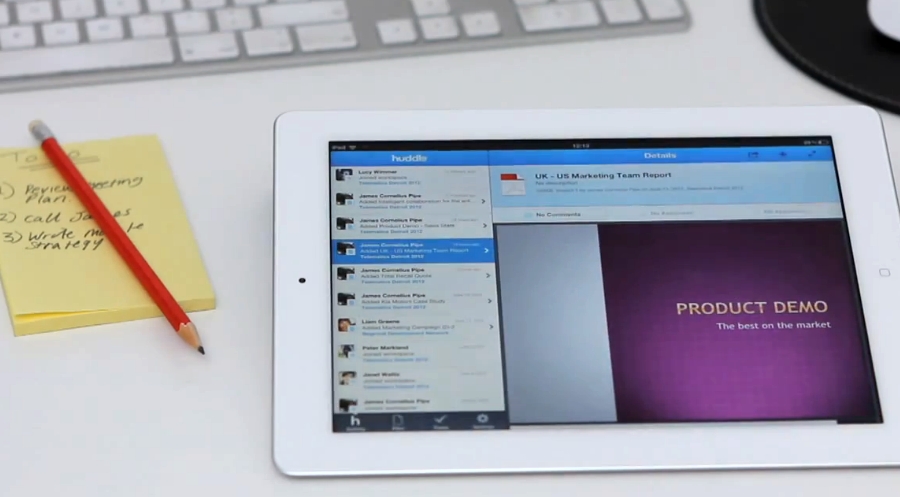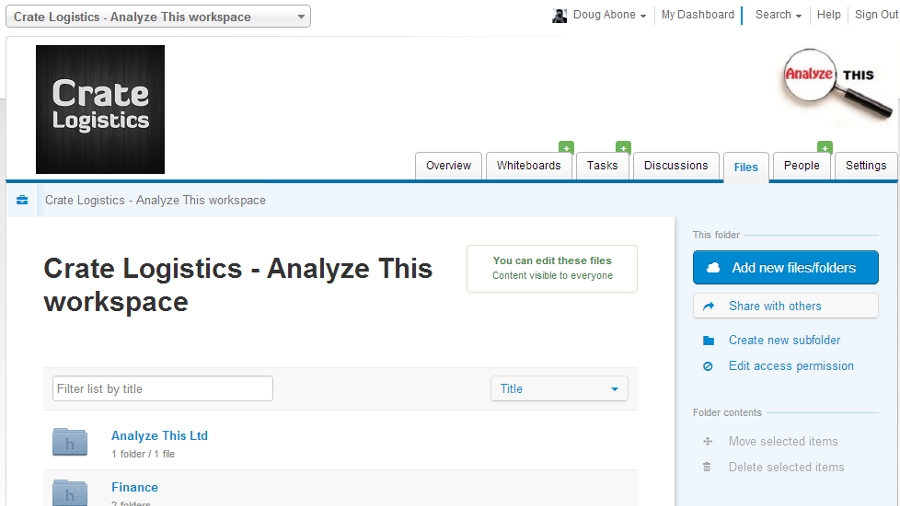How Huddle is transforming business collaboration
The Brit startup is looking to unseat SharePoint

Alastair Mitchell, CEO and co-founder of cloud-based collaboration platform Huddle, has experienced first hand the difficulties facing small businesses as they begin to outgrow their surroundings.
Huddle started out as a handful of people back in 2006 based at the company's HQ in East London's 'Tech City'. It has since opened offices in New York and San Francisco in its quest to disrupt a market that has for years been dominated by Microsoft's SharePoint.
"SharePoint is a classic example of something that was designed back in an era when we had firewalls and wanted to keep everything to ourselves," Huddle CEO Alastair Mitchell tells TRPro. "These days, once the business begins to grow you start to think about having to make serious IT investments, but the last thing you want to do is go and put in servers, run a bit of old legacy technology and hire more IT staff."
Shared drive
Collaboration in the cloud is providing smaller businesses with an alternative to shared drives (which can be complicated to set up and offer varying degrees of performance), while allowing new ways of working on mobile devices.

Accessed through a browser, Huddle lets employees share and manage files, exchange messages and create public or private workgroups for team-based collaboration. It also features complete offline support for iOS devices, and like many cloud services, it allows businesses to add more users as it grows while paying for them on a per-user, per-month basis.
Businesses are given the chance to dip their toes in the water before committing to the platform. According to Mitchell, many of the company's smaller customers introduce the service one department at a time before rolling it out across the whole organisation.
Invitation only
By using an invitation-only system for sharing files, Mitchell says that the service aims to address IT departments' concerns around the rise of consumer cloud services, such as Dropbox, which are free from IT control.
Are you a pro? Subscribe to our newsletter
Sign up to the TechRadar Pro newsletter to get all the top news, opinion, features and guidance your business needs to succeed!
"These tools have well-known security issues, and even if you're a small business, your contracts, IP and confidential information could be lost if they're hacked," he says. "Businesses used to lose USB drives with files stored on them, which was not only a security issue, it also meant that people would walk out of the building with that information. Businesses of any size are right to be paranoid about that."

Huddle aims to address this by tracking and logging any interaction with files for administrators to view. This could be particularly useful for marketing departments, or any other that needs to check if employees have the most up-to-date versions of documents before releasing them to the public.
"Many businesses feel better about putting a piece of content or a document inside a secure environment," says Mitchell. "That way, people have access to it and you can see the versions, audit every single person who's been looking at it and see the social commentary around it."
Clever collaboration
Many businesses now expect cloud collaboration platforms to have moved on from the slow pacing of legacy software by introducing new features on a regular basis. Huddle adds new features every 20 days, with some developed off the roadmap in what the company dubs "Tuesday time".
"The core difference between software-as-a-service and traditional enterprise software is that you get the core features that you'd only tend to get if you bought the very high-end package," says Mitchell. "It makes the cloud a very level playing field."
One of the Huddle's most recent additions is its 'Intelligent Recommendation Engine', which is based on the company's proprietary technology and uses an algorithm to determine which files a user may need based on their activity before pushing them out to users' devices.
But new features are alone are not enough to tempt customers into using the service, explains Huddle's Chief Marketing Officer, Chris Boorman, who believes that businesses these days also expect ongoing support after initially signing on the dotted line.
"Vendors need to be far more customer centric, because if a customer doesn't like what they're doing, they won't renew their subscription and will go someplace else," he says. "We see this as a monthly, quarterly or annual process."
Expanding business
It took Huddle several attempts to move to expand to the US, recalls Mitchell, who explains that small businesses looking to do the same, no matter what the destination, should focus on management by transferring company founders to the new offices first.
"You have to bring the culture with you, which is why we took the best guys we had from the UK to help us land and expand in the US market," he says. "You need an approach that you can just roll out. You can't be having to figure things out in the new market at the same time as figuring things out in your home market."
Of course, having a savvy marketing department can also help get the name of any small business out into the open, though Huddle's approach is not likely to be one copied by many others.
"We hired a noisy 80-person marching band decked in Huddle outfits to march across the room at a SharePoint conference," says Boorman. "A lot of the US government are SharePoint users, and it's always important to keep at front of mind to be driving awareness as well as driving business. It's a balancing act that any business should aim to get right."
